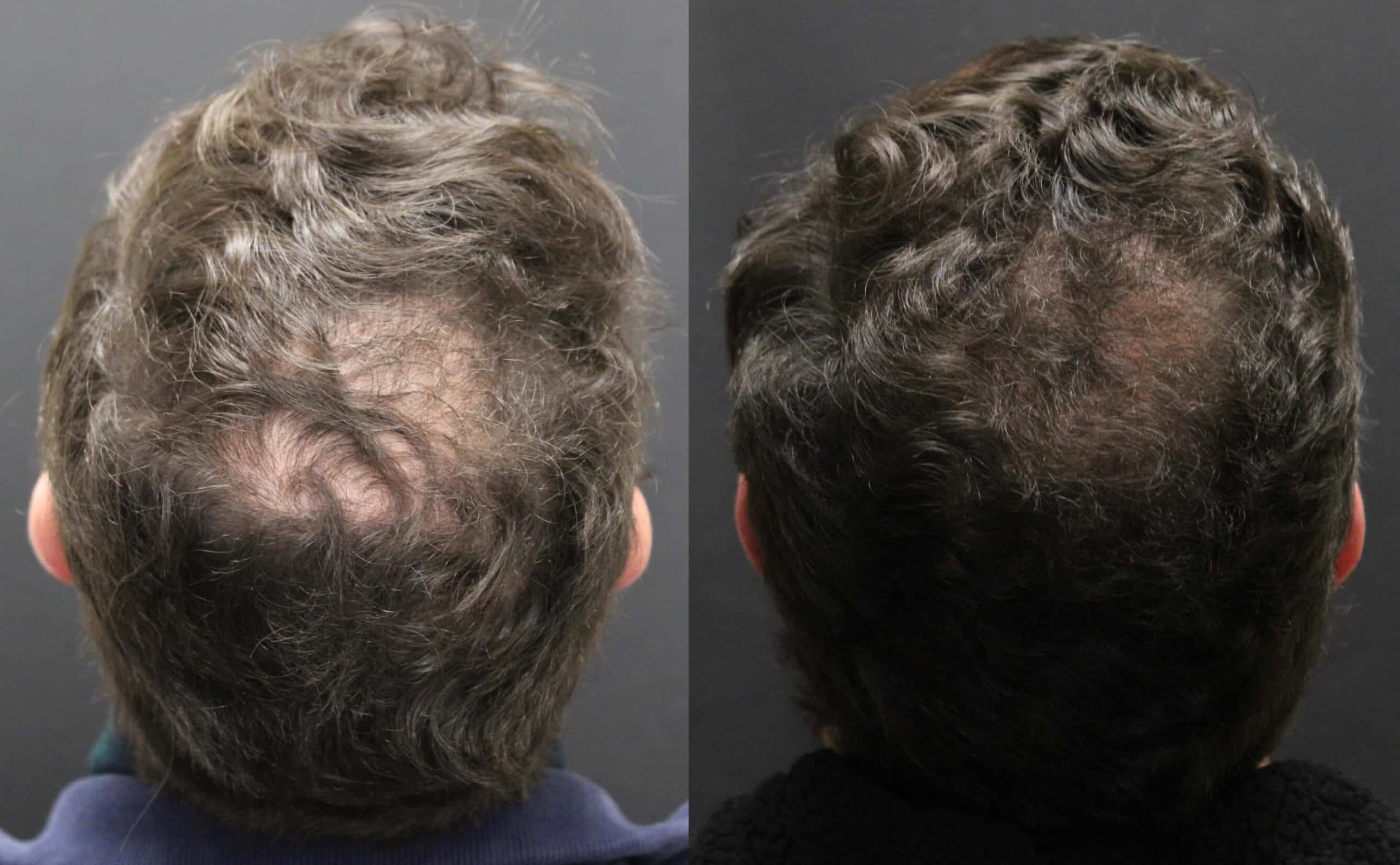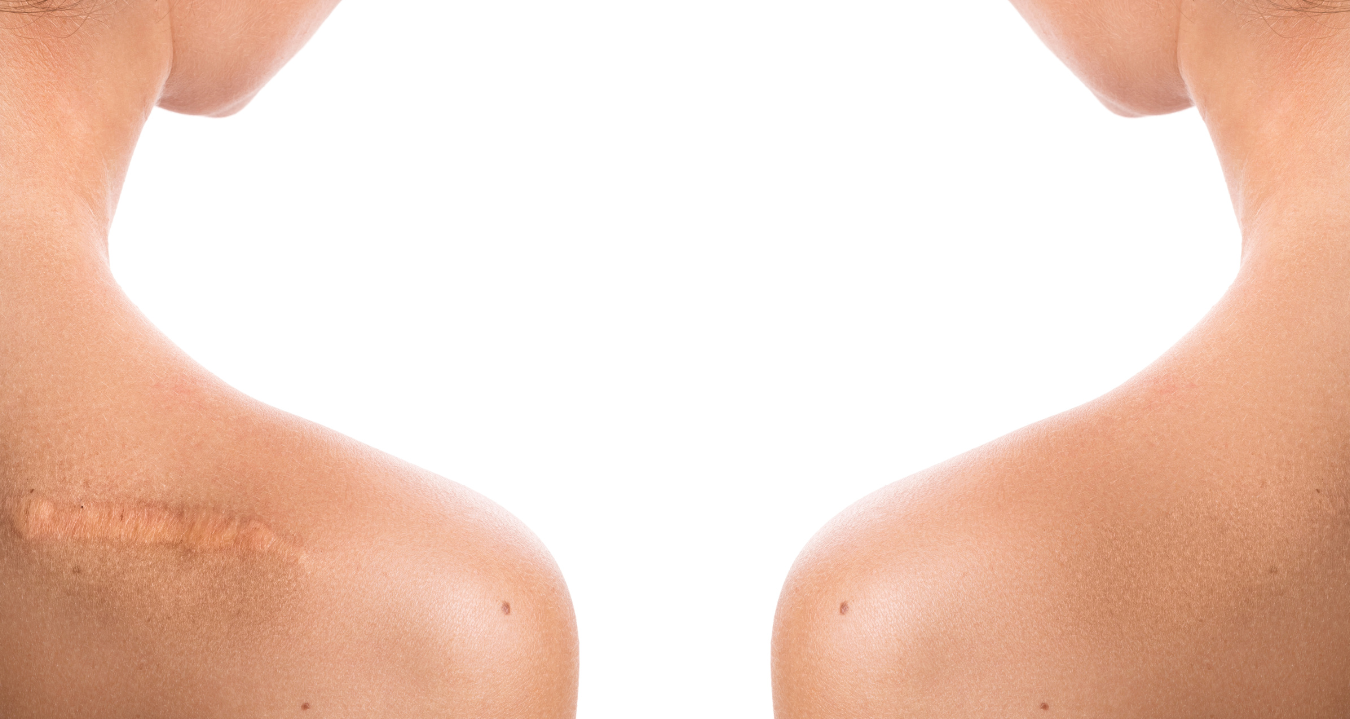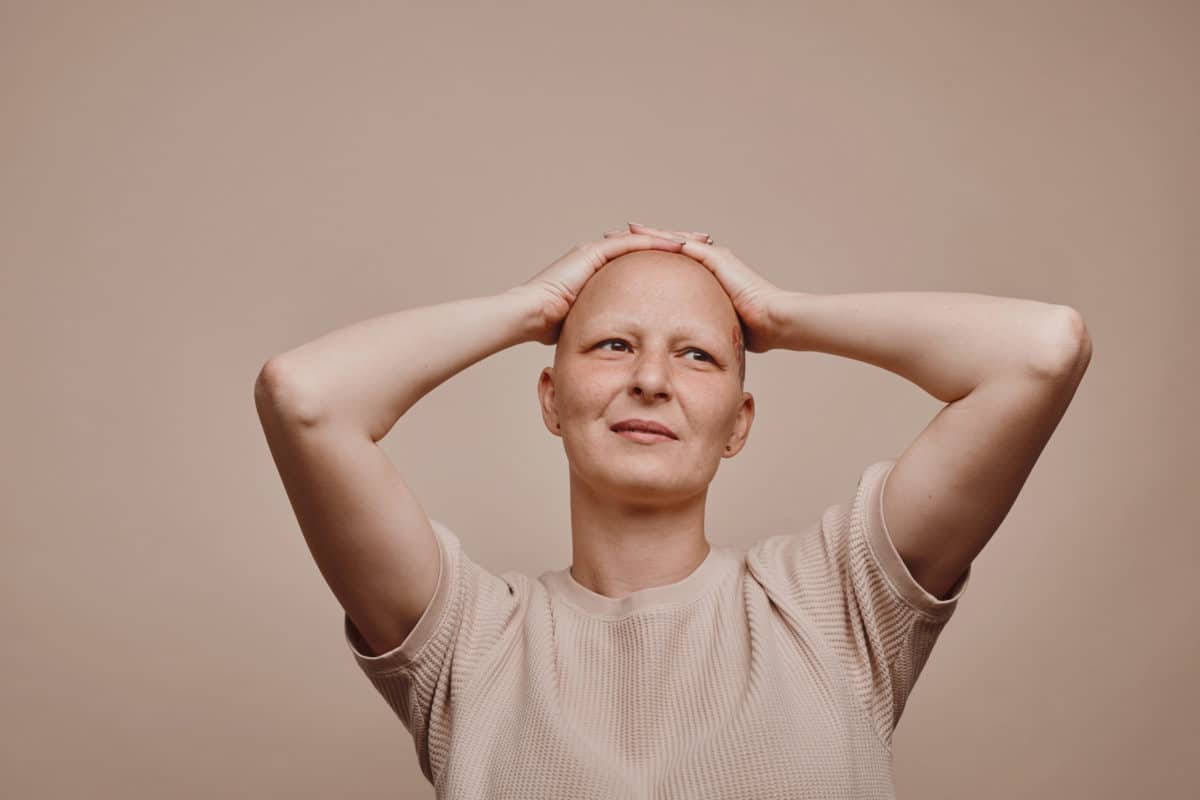
Revolutionary Hair Loss Treatment for Men: What Works in 2024?
Are you tired of losing hair and seeking effective solutions to regrow your precious locks? You’ve come to the right place! This guide will take you through the world of revolutionary hair loss treatment for men, from medical breakthroughs to natural remedies, helping you make informed decisions and regain confidence.
Key Takeaways
- Understanding male pattern baldness is key to identifying appropriate treatments.
- Various topical, over-the-counter, and oral medications are available for hair loss treatment. FUT/FUE procedures offer a more permanent solution.
- Natural remedies, lifestyle adjustments, and scalp care routines can help combat hair loss, while innovative treatments offer promising advancements in the future.
Understanding Male Pattern Baldness
Male pattern baldness, also known as androgenetic alopecia, is an inherited characteristic affecting more than half of males over the age of 50. This common type of male pattern hair loss is attributed to the shrinking of hair follicles at the base of hairs, leading to hair thinning and receding hairlines. Other potential causes of hair loss include stress, illness, scarring, and certain medications, which may require different treatment approaches.
The Hamilton-Norwood scale identifies seven stages of male pattern baldness, with treatments like minoxidil and finasteride available to tackle hair loss. However, the emotional distress caused by male hair loss can lead to anxiety and depression. Therefore, understanding the underlying factors causing hair loss and seeking appropriate treatment options is crucial.
Treatment efficacy may vary between individuals, and it’s necessary to use them consistently for several months to observe desired results. It’s always recommended to consult a healthcare professional for personalized advice, as various treatments and services can be customized to suit individual requirements.
Topical Solutions: Minoxidil and Beyond
Minoxidil is a popular FDA-approved topical treatment for male pattern baldness. This stimulant for hair growth has been observed to increase hair growth while reducing hair loss. However, over-the-counter alternatives are available, which may vary in efficacy compared to minoxidil.
We shall further examine the realm of topical solutions.
Minoxidil: The Go-to Topical Treatment
Initially developed to treat high blood pressure, minoxidil was discovered to have the side effect of excessive hair growth. The FDA has approved topical minoxidil for the treatment of androgenetic alopecia in both males and females. Minoxidil is believed to widen hair follicles, resulting in thicker hair strands and more hair strands. It has been found to be safe and effective when used correctly, especially in individuals under 40 years of age.
However, potential side effects of using minoxidil may include:
- Hair shedding
- Scalp irritation
- Dermatitis
- Headaches
- Unwanted hair growth
It is necessary to consider the benefits and risks of using minoxidil and consult a healthcare professional before initiating treatment.
Over-the-Counter Alternatives
Topical minoxidil is not the only option to treat male pattern baldness. Over-the-counter hair loss treatments encompass nutrients, plant-based botanicals, and other ingredients that promote hair growth, such as saw palmetto, horsetail, and vitamin B3. These treatments are thought to increase hair count, hair weight, and hair shaft diameter while prolonging the growth phase of the hair follicles.
Although some over-the-counter hair loss treatments may result in side effects like acne, irritation, and dermatitis, these side effects are not commonly observed. It is important to remember that the effectiveness of these treatments may vary, and professional advice from a healthcare provider is recommended for personalized guidance.
Oral Medications: Finasteride and its Alternatives
Finasteride, or Propecia, is a prescription medication approved by the FDA for treating male pattern baldness. It works by inhibiting the enzyme that converts testosterone to dihydrotestosterone (DHT), a hormone that causes hair follicles to shrink, leading to hair loss. Finasteride has been shown to slow hair loss and stimulate hair regrowth in some men, making it a popular treatment option.
The two most widely used medications for treating hair loss are minoxidil (Rogaine) and finasteride (Propecia). Although both have been demonstrated to be effective, their outcomes may vary from one individual to another. It is important to consult with a healthcare professional to identify the most suitable treatment option for you.
It is worth noting that it may take up to one year to observe results from minoxidil and finasteride. Consistency and patience are key when using these medications, as the desired effects may not be immediately apparent.
Breakthroughs in Hair Transplant Technology
Hair transplant technology has come a long way, offering advanced surgical procedures to transplant hair follicles from the scalp to bald patches. The most commonly utilized hair transplant procedures are follicular unit transplantation (FUT) and follicular unit extraction (FUE). These procedures offer a more permanent solution to hair loss but also have potential risks, such as infections and scarring.
Hair transplants may not work as effectively for individuals with widespread thinning or baldness, or if hair loss is due to chemotherapy or medications. A consultation with a healthcare professional is necessary to determine if hair transplant technology is the right treatment option for you.
Low Level Laser Therapy (LLLT) for Hair Regrowth
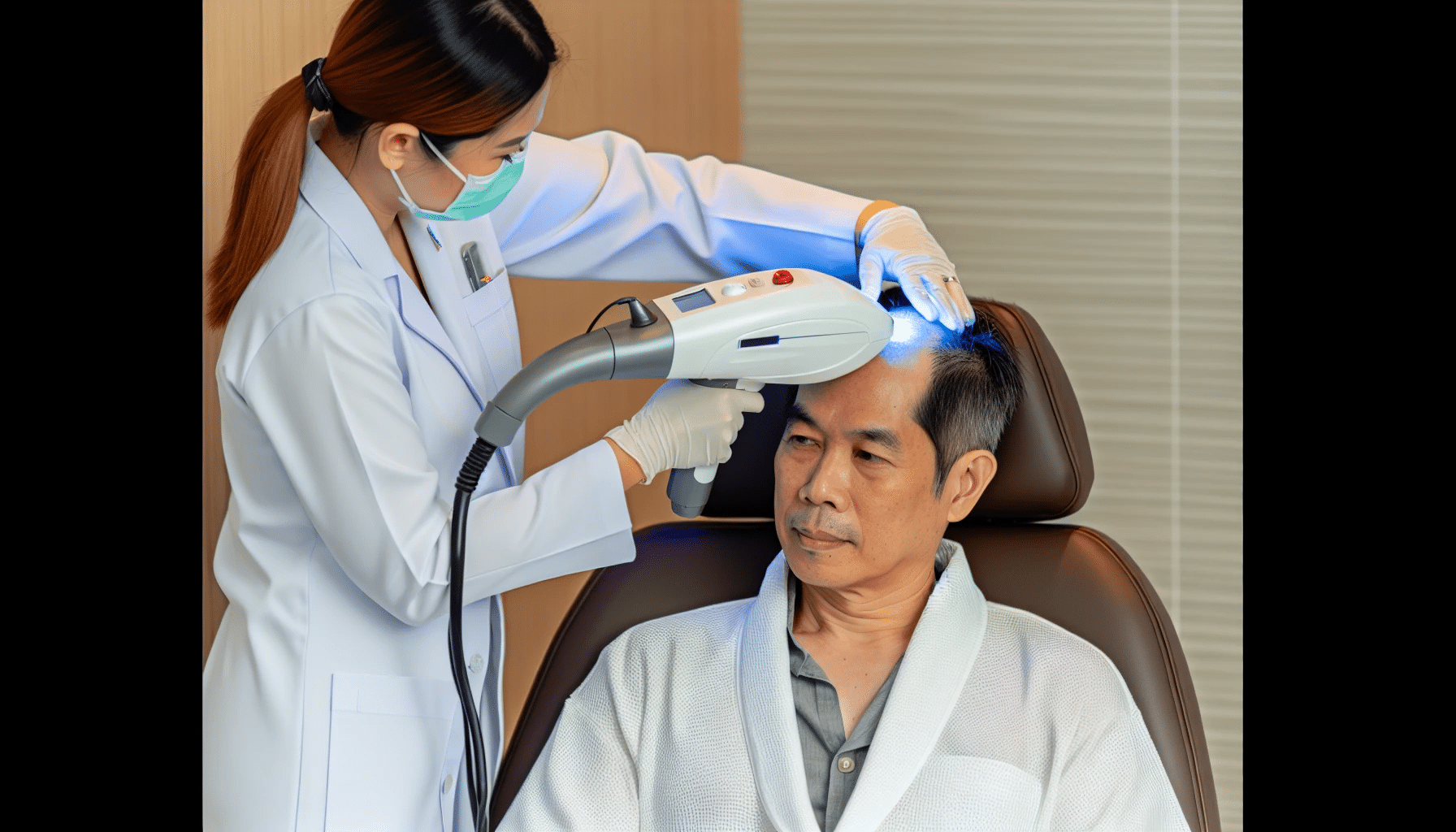
Low-Level Laser Therapy (LLLT) offers a non-invasive treatment option for hair loss, using laser light to stimulate hair follicles and promote hair growth. Limited studies show promising results for LLLT as a hair loss treatment, but more research is needed to confirm its efficacy.
A 2019 study on a novel laser cap was conducted. It demonstrated success in improving hair density and visual thickness of hair for 19 participants. This encouraging research suggests that LLLT may be a viable alternative for those seeking non-surgical hair loss treatment options.
The Power of Platelet-Rich Plasma (PRP)
Platelet-rich plasma (PRP) therapy has gained attention as a potential treatment for hair loss, particularly in androgenetic alopecia and female pattern hair loss. The therapy involves:
- Obtaining a blood sample
- Processing it through a centrifuge to isolate platelets
- Injecting them into designated scalp areas stimulates healing in afflicted hair follicles.
Studies show that PRP therapy for hair loss can improve quality, sheen, and new hair growth, with an estimated 70-90% success rate for the average patient. However, it is necessary to consult a healthcare professional to determine if PRP therapy suits your specific hair loss condition.
Natural Remedies and Supplements
In addition to medical treatments, essential oils, herbal supplements, and other natural remedies are available for those looking to treat hair loss. These alternative options have gained popularity due to their potential benefits and fewer side effects than prescription medications.
We shall further examine the effectiveness of these natural remedies.
Essential Oils and Their Efficacy
Essential oils extracted from plants possess therapeutic benefits and are utilized in aromatherapy. Some popular essential oils for hair growth include rosemary, tea tree, and lavender oil. These oils are believed to help reduce inflammation, balance oil production, and fight scalp problems that can lead to hair fall.
While some sources claim essential oils can promote hair growth, more research is needed to support their efficacy. Consulting a healthcare professional before using essential oils for hair loss treatment is important, as they may cause skin irritation or allergic reactions in some individuals.
Herbal Supplements: Saw Palmetto & More
Herbal supplements like saw palmetto, horsetail, and vitamin B3 have gained attention for their potential effectiveness in treating hair loss. Saw palmetto, in particular, has been studied for its potential benefits in treating androgenetic alopecia, with one study demonstrating a 60% improvement in hair loss arrest and overall quality compared to a placebo. However, official bodies do not advocate saw palmetto as a treatment for hair loss due to limited evidence.
Remember that the effectiveness of herbal supplements may vary and it is advisable to consult a healthcare professional for personalized advice. Always ensure that you choose high-quality supplements from reputable sources to avoid potential risks and side effects.
Lifestyle Adjustments to Combat Hair Loss
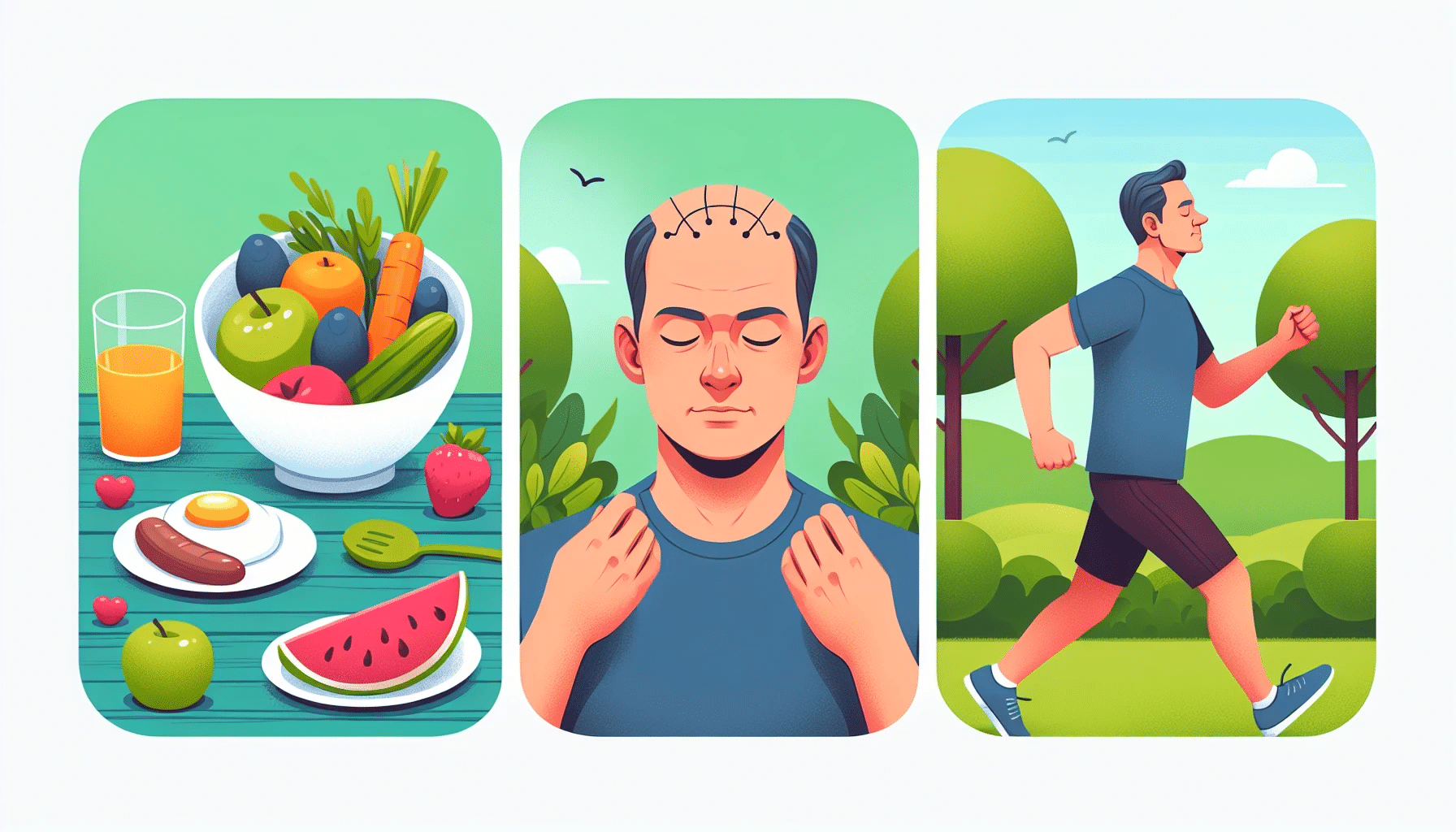
Lifestyle adjustments can play a significant role in combating hair loss. Some examples include:
- Reducing stress levels, which can help alleviate hair loss caused by stress-induced conditions like telogen effluvium
- Maintaining a balanced diet rich in essential nutrients
- Staying hydrated, which can contribute to healthy hair and prevent hair loss
Treating your hair gently is important; avoiding tight hairstyles, chemical treatments, and excessive heat styling can contribute to hair breakage and loss. By making these lifestyle changes, you can better support your hair’s health and minimize the risk of further hair loss.
Nurturing Your Scalp: Massage and Care Routines
Scalp massage techniques and care routines can stimulate hair growth by stimulating hair follicles. A study conducted in 2019 suggested that scalp massages could potentially create a sensation of increased hair density. This conclusion was based on the participant’s personal impressions. Incorporating scalp massages into your daily care routine can promote hair growth and contribute to a healthy scalp.
Using gentle massage techniques, avoiding aggressive scrubbing, and choosing hair care products suitable for your hair type and scalp condition are important. This will help maintain a healthy scalp environment and minimize the risk of scalp irritation and infections that can contribute to hair loss.
Innovative Treatments on the Horizon
As research continues, innovative treatments for hair loss are emerging. Promising advancements include:
- Pfizer’s ritlecitinib, which has shown positive effects on scalp hair growth in alopecia patients
- The utilization of microRNA to stimulate growth in aging hair follicles
- Stem cell therapy has demonstrated potential in addressing various forms of hair loss and improving hair density.
While these treatments offer hope for those affected by hair loss, remember that they may not be accessible for clinical use just yet. As research progresses, new and improved treatment options are anticipated to help individuals regain their confidence and restore their hair.
Summary
In conclusion, the world of hair loss treatments is vast and ever-evolving. From FDA-approved medications like minoxidil and finasteride to breakthroughs in hair transplant technology and alternative natural remedies, numerous options are available to tackle hair loss. By understanding the causes, seeking professional advice, and making lifestyle adjustments, you can take control of your hair loss journey and regain your confidence.
Frequently Asked Questions
Can a man’s hair grow back?
It is possible to regrow hair with early treatment. However, male pattern baldness tends to develop slowly, and results vary. Treatment can reduce further hair loss and some men have seen regrowth, but it’s not usually possible to reverse balding quickly.
Seeking Hair Restoration Services in Nashville?
For those in Nashville seeking professional assistance for hair restoration, HPIHair is a highly recommended destination. Known for their proficiency in managing diverse hair loss conditions, they provide various efficacious solutions, each personalized according to individual needs.
How do I fix my thinning hair?
Try using minoxidil, oral medications, platelet-rich plasma injections, laser light treatments, or supplements to help restore your hair. For more natural remedies, scalp massage, essential oils, anti-thinning shampoo, multivitamins, folic acid supplements, biotin, omega-3, and omega-6 fatty acids may also be beneficial.
Is it possible to regrow hair after 40?
Regrowing hair after 40 is possible, but the success of different hair regrowth methods can significantly depend on the individual’s health, the cause of their hair loss, and the chosen treatment approach. Factors such as genetics, hormonal changes, stress, and nutrition play roles in hair loss. Treatments range from medications like minoxidil (Rogaine) and finasteride (Propecia) to topical applications containing peptides or natural ingredients and lifestyle adjustments emphasizing a balanced diet and stress reduction. More invasive options include hair transplant surgery and innovative therapies like Low-Level Laser Therapy (LLLT) and Platelet-Rich Plasma (PRP) Therapy. Scalp Micropigmentation (SMP) offers a cosmetic solution, while natural remedies and supplements like biotin are sought for their potential benefits, albeit with varying efficacy. Consulting with a healthcare provider or dermatologist is essential to identify the root cause of hair loss and tailor the most effective treatment plan. For authoritative information and treatment options, the American Academy of Dermatology Association provides resources and guidance on hair loss treatment, which can be accessed through their website: https://www.aad.org/public/diseases/hair-loss/treatment
What is the best thing to stop hair loss in men?
The best thing to stop hair loss in men is to use Minoxidil (available both by prescription and over-the-counter) or Oral finasteride, as these medications can slow down the rate of hair loss and potentially stimulate new hair growth.
What is the difference between minoxidil and finasteride?
Minoxidil is a topical and oral (LDM) treatment used in both men and women, while finasteride is an oral medication primarily prescribed to men, this treatment along with its sister medical dutasteride can also be successful as a treatment in women past child bearing years. Both are FDA-approved treatments for hair loss, but they work through different mechanisms to achieve their respective results.


